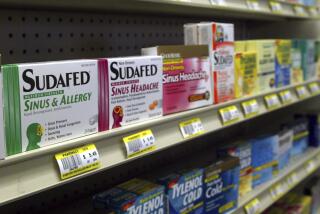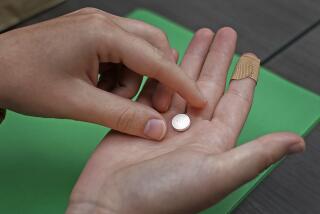FDA Panel Declines to Offer Opinion on Generic Estrogen
- Share via
ROCKVILLE, Md. — A Food and Drug Administration advisory panel declined Friday to recommend approval--or disapproval--of a cheaper, generic version of the nation’s most prescribed drug, saying it doesn’t have enough information.
The committee concluded there was “insufficient data” to determine if a generic estrogen drug had to contain all of the components that are in the top-selling Premarin, a hormone-replacement drug used by about 9 million post-menopausal women.
Committee members agreed on a statement offering no recommendation after two days of testimony on questions related to a petition by Duramed Pharmaceuticals Inc. to market a cheaper copy of Premarin.
Wyeth-Ayerst Laboratories, the maker of Premarin, filed a petition opposing the generic. The company argued that the generic, made of synthetic compounds, lacked an important ingredient that is in Premarin, a drug refined from the urine of pregnant mares.
Premarin is prescribed for women to prevent osteoporosis, a bone-thinning disorder experienced by about one woman in five after menopause. The drug also helps prevent heart disease and some types of cancer, and controls symptoms of menopause, such as hot flashes and vaginal dryness.
The issue before the committee was the biological effect of a chemical called delta 8, 9 DHES, which is one of six types of estrogen contained in Premarin. In a 1991 FDA action, the agency declared DHES to be an inactive ingredient of Premarin and that a generic for the drug would have to contain only five forms of estrogen. A generic proposed for marketing by Duramed followed the five-estrogen formula.
In its petition, Wyeth-Ayerst claimed that DHES was a key component and that there was uncertainty about whether an estrogen-replacement pill without DHES would have the same beneficial effects of Premarin.
Despite two days of testimony from experts, the advisory committee decided there was not enough known for it to make a decision about DHES.
The next move is now up to the FDA. The agency can decide whether to require DHES in a generic or stick with the 1991 decision that declared the compound unnecessary. Officials said a decision may take six months.






